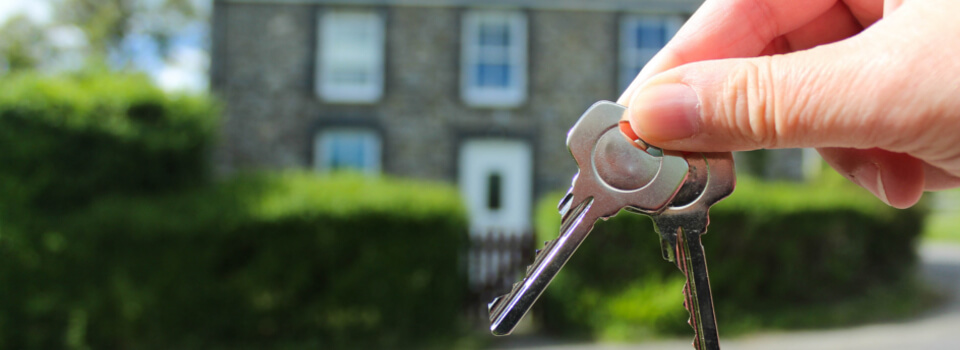From snow-capped mountains in Kerry and white-sand beaches in Donegal to the stunning coastlines of Cork, running a holiday let in Ireland can be a wise move for property owners.
Whether it’s starting a new holiday let business for extra income or owning a second home, the Emerald Isle has buckets of potential for landlords looking to diversify their property portfolio and make profitable returns on their investment.
Read on to find out more about the benefits of holiday letting in Ireland…
What is a holiday let?
Are holiday lets in Ireland a good investment?
What are the benefits of buying a holiday let in Ireland?
How do I buy a holiday let in Ireland?
Can non-residents get a holiday let mortgage in Ireland?
What are the legal requirements for holiday letting in Ireland?
Are there tax regulations for purchasing a holiday let in Ireland?
Local Holiday Letting Expertise in Ireland
What is a holiday let?
A holiday let is a property that is let for a short period time, which can be no longer than 31 days in compliance with the furnished holiday letting rules.
Holiday lets in Ireland must be furnished, often to a high standard to maximise earning potential and attracting year-round bookings. According to the Tourist Traffics Act 1939-2016, self-catering holiday cottages in Ireland must include:
- Sleeping, dining and lounge accommodation
- Storage space
- Toilet and bathing facilities
- Kitchen and cooking facilities
Adding luxury items to your property can bring significant return on investment, as our data shows that holiday cottages with hot tubs can boost rental income by almost 50%, while holiday homes with open fires earn on average 19% more per year.
Are holiday lets in Ireland a good investment?

Owning a holiday let is becoming an increasingly popular investment opportunity in Ireland. Holiday letting can be a great way to earn more money, particularly for short-term holiday lets.
Before buying a holiday home in Ireland, consider your motivations for owning a second property. Do you plan to manage your holiday let remotely? Have you factored in the costs of running a holiday let business? How will you furnish your holiday cottage? What are the rental rates like in your chosen area?
For those thinking of buying, taking these factors into consideration and being realistic about what’s involved when running a successful holiday let can help generate the best yields.
With this in mind, here are a few reasons why buying a holiday let is a good investment:
Demand for Irish holidays
According to the Irish Tourism Industry Confederation (ITIC), bookings for holiday lets in Ireland are predicted to reach 67% of 2019 levels, when an estimated 6.5 million visitors visited and spent a record breaking £1bn.
While geopolitical and economical challenges have impacted the travel industry over the last 2 years, the short to medium outlook for Ireland remains high. Research from ITIC shows the removal of most travel related restrictions has resulted in pent-up demand boosted by significant household savings, painting an optimistic picture for Irish holiday lets in 2022.
Higher income potential
In response to increasing demand, the earning potential for a second income is looking strong for holiday home owners looking to make higher rental yields. Our data shows the average UK holiday let owner earned £28,000 in revenue from their holiday let last year, up from £21,000 in 2019.
By signing up with Hogans, you can benefit from our local experts in Ireland who will help you set the perfect price for your holiday home and maximise your properties potential.
Holiday let tax
Holiday let owners in Ireland may be eligible for a number of tax benefits, including Mortgage Interest tax relief, Business Rates relief, Capital Gains tax relief and more.
You can also claim tax relief and capital allowances on expenses if your property is fully furnished. For example, if you purchase furniture for €1,000, for the next 8 years you can claim €125 each year against your rental income as Wear and Tear (1000 * 12.5%).
What are the benefits of buying a holiday let in Ireland?

Culture
Running a holiday let in Ireland offers many unique benefits, both financially and personally. Investing in an Irish holiday home can be a great way to attract year-round bookings, as well as the chance to escape to your own holiday retreat in a spectacular location.
Rich in culture with magnificent scenery, impressive castles and diverse artistic talent, Ireland’s unique heritage attracts visitors from all over the world.
Stunning Counties
Ireland is home to many unique events and lively pubs teeming with traditional Irish culture, with a choice of 32 picturesque counties across the island.
While the most popular counties of Dublin, Galway, Cork and Kerry are likely to guarantee higher demand for bookings, some of the smaller counties offer untapped potential with short-term rental demand expected to grow in 2022 and beyond.
Your own place for a staycation
Owning a second home in Ireland also gives you the benefit of having your very own retreat that you can visit anytime. If you decide to let your holiday home, you’ll have full control to block out time for your own personal use and explore the many Irish coastal towns.
However, it’s important to bear in mind the potential impact on bookings and yearly income. The more time you spend at your holiday let, the less revenue you will generate across the year.
How do I buy a holiday let in Ireland?
There are a few things to consider before investing in an Irish holiday home:
Location
Sykes’ data shows that that demand for staycations has increased owner income across the UK up by 33% in just two years. But location, property type and features are key factors to holiday let success.
While rural holiday cottages remained a popular choice for guests in 2021, our Holiday Let Outlook Report suggests an increased demand for city breaks as restrictions are lifted and major events return to UK venues. If you’re thinking of buying a property with the intention of holiday letting, this may be something to take into consideration.
Choosing a prime location within a major town or city such as Dublin or Belfast may be a smart investment move as guests looking for a weekend break will be looking to stay within a reasonable distance of amenities. Buying a holiday let with nearby restaurants, beaches and local attractions can increase your chances of consistent year-round bookings, even during shoulder seasons.
If you have a potential location in mind, it may be worth researching why holidaymakers choose to stay in the area. This can be useful when deciding on the location for your holiday accommodation as you can identify your target market and tailor your property to certain types of visitors.
Maintaining your holiday let
If you are planning on managing and maintaining your holiday let, you will need to choose somewhere that is within a reasonable travel distance from your home.
Depending on how much you plan to be involved in managing your holiday let, working with an trusted agency can help give you the options you need. At Hogans we offer a range of flexible services including cleaning, changeover and laundry to suit your independent requirements.
Request your free owner pack today to find out more.
Registering your holiday let in Ireland
When it comes to registering your holiday let, any tourism business must be registered with Fáilte Ireland under the Tourist Traffic Acts 1936-2016 and comply with a set of criteria in order to qualify as a self-catering holiday cottage.
Can non-residents get a holiday let mortgage in Ireland?
If you are a non-resident, finding a mortgage broker to finance your Irish property can sometimes be tricky. When obtaining a holiday let mortgage in Ireland, you’ll need to find a reputable Irish lender with a strong UK presence.
Securing a holiday let mortgage
It’s important to be aware of the loan-to-income restrictions when buying a holiday home in Ireland. Since 2015, the Central Bank has placed measures to protect the Irish economy and ensure sensible lending. Under these rules, owners are only permitted to borrow 3.5 times their gross annual income. This loan-to-income rule applies to both joint and single-person mortgages.
These measures are reviewed on an annual basis, however, lenders do have some flexibility to make exceptions to the rule. In a 12-month period, exceptions are granted for:
- A maximum of 20% of the value of mortgages to first-time buyers.
- A maximum of 10% of the value of mortgages to second-time buyers
- A maximum of 10% of the values of mortgages to buy-to-let buyers
Ireland also has measures to protect loan-to-value (LTV) limits which apply to mortgage deposits. It is mandatory to meet the minimum deposit requirement before you can apply for a holiday let mortgage in Ireland, which is:
- First-time buyers – minimum 10% deposit
- Second time/subsequent buyers – minimum 20% deposit
- Buy-to-let investors – minimum 30% deposit
What are the legal requirements for holiday letting in Ireland?
When letting out a holiday home in Ireland, you must comply with UK standard regulations to ensure your guests are safe during their stay. This includes:
- Checking the property is safe for children
- Reducing the risk of any trip or slip hazards
- Installing secure hand railing on all stairways
- Clear signage for hazards such as low ceilings
- Providing a list of emergency contact numbers for your guests
As well as regular health and safety, you need to provide adequate furnishing in your property for it to count as a furnished holiday let (FHL).
Are there tax regulations for purchasing a holiday let in Ireland?

Owning a property, whether as a holiday let or second home, will mean you are legally responsible for paying taxes. There are three different types of tax that must be paid when owning a holiday let:
Income Tax
When managing a holiday let in Ireland, any revenue generated by your property will be subject to income tax, which will usually be 20% or 40% depending on your income. However, there are a number of ways to offset your tax bill.
Unlike typical buy to let properties, holiday letting does not have a limit on the amount of mortgage you can offset with the profits you make from your holiday let. Income tax is only paid on the profit generated from bookings at your holiday let, which can be calculated by subtracting your allowable expenses from your total income.
Universal Social Charge (USC)
From 1 January 2011, Universal Social Charge (USC) was a tax introduced in Ireland to replace both the income levy and the health levy. USC is tax paid on gross income over €13,000 or more per year, including notional pay (notional pay is a non-cash benefit, such as benefit-in-kind), after any relief for certain capital allowances payable between 0.5% and 11%.
Social Insurance (PRSI)
You may also be liable for PRSI (social insurance charges) at a rate of 4% depending on your level of income. For more information visit the Citizens Information website here.
What expenses can I potentially claim?
You may be able to claim certain expenses on your holiday let, including:
- Mortgage interest on loan to acquire property
- Repairs, for example damp and rot treatment, repairing broken windows or appliances
- Maintenance, for example cleaning, painting or decorating
- Management and estate agent fees
- Fees paid to accountants for preparation of accounts
- Advertisement expenses
- Insurance premiums
- Most mortgage protection policy premiums
- Service charges if these are paid by the landlord and no separate payment is received from the tenant(s), for example bin charges, electricity, gas, phone rental, etc.
- Rates paid to a local authority
To learn more about eligibility and how to make a claim on your Irish rental income, take a look at the Revenue.ie website here.
Local Holiday Letting Expertise in Ireland
With over 10 years of experience helping over 750 holiday home owners in Ireland, we are fully committed to supporting you on your holiday letting journey. Our dedicated team of consultants are able to provide local knowledge, advice and expert understanding of properties to invest in Ireland.
Whether you already own a holiday let in Ireland, or are looking to buy a second home, our expert advisors are available to answer your queries. Call us on +44 1244 500501 or complete our form and a member of our team will be in touch.
Disclaimer
The information contained in this article was accurate at the time of writing, based on our research. Rules, criteria and regulations change all the time, so please contact our prospective new owner team if you’d like to hear how. Nothing in this article constitutes the giving of financial, tax or legal advice to you; please consult your own professional advisor (accountant, lawyer etc). in this regard. If we have referred within the article to a third-party provider of unregulated holiday let mortgages, this is due to the fact that such mortgages aren’t currently regulated by the FCA. As a helpful reminder, your home may be repossessed if you do not keep up repayments on a mortgage, so again anything you decide to do in this particular area this is one on which you should take your own professional advice on too, as we aren’t providing and can’t provide you with this.